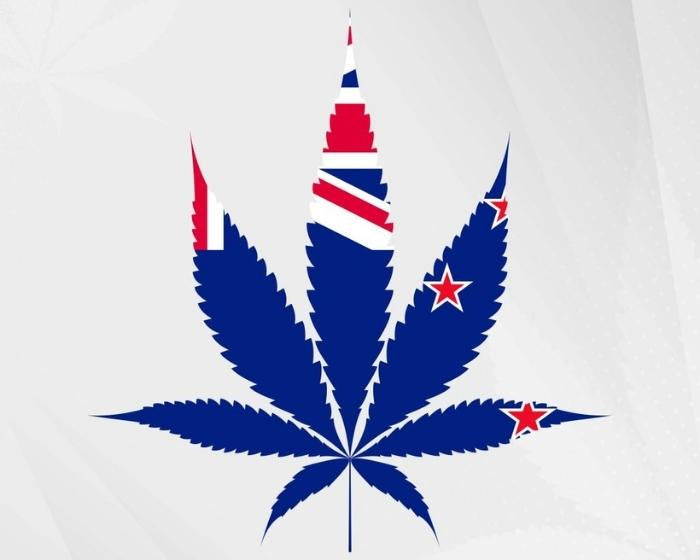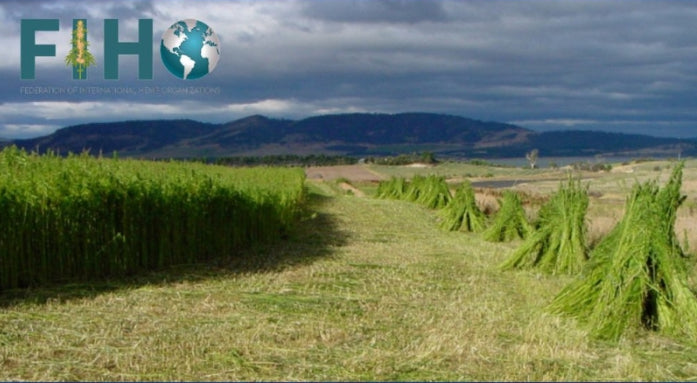Citing safety concerns, state regulators and lawmakers believe the ruling could have potentially detrimental health effects on unsuspecting consumers.

The past few weeks have been nothing short of relentlessly eventful for the hemp industry nationwide. Since the beginning of September, judges in Arkansas and Texas temporarily lifted bans on products containing hemp-derived delta-8 THC. Conversely, Alaskan lawmakers approved new regulations on hemp-derived, low-dose THC products this week, which now place items with intoxicating psychoactive properties under the regulatory authority of the state's marijuana control board.
Not wanting to be left out of the party, Maryland officials are now pushing back on a state judge's ruling that temporarily suspends enforcement of a law passed this summer banning the sale of items containing the battered and beat-up hemp-based cannabinoid delta-8 THC.
According to multiple local and national media outlets, state health and cannabis regulators are calling Circuit Court Judge Brett R. Wilson's decision to allow the resumption of delta-8 THC sales counterproductive to the state's efforts to provide consumer safety in the regulated cannabis sector.
"The Administration was disappointed to learn of the preliminary decision in Washington County Circuit Court allowing for the continued sale of unregulated, untested, and intoxicating hemp-derived products," William Tilburg, director of the Maryland Cannabis Administration, said in a statement.
"The Administration was disappointed to learn of the preliminary decision in Washington County Circuit Court allowing for the continued sale of unregulated, untested, and intoxicating hemp-derived products."
- William Tilburg, Director of the Maryland Cannabis Administration
Wilson's ruling came in response to a lawsuit filed by the Maryland Hemp Coalition and a group of hemp businesses alleging the new law violates the equal protection and anti-monopoly clauses in the Maryland Constitution.
The new law bans the sale of CBD-based products such as gummies, topicals, and extracts containing more than 2.5 milligrams of THC per package for businesses without a retail cannabis license. In addition, the statute also explicitly prohibits items containing delta-8 THC. According to the details of the lawsuit, the new limits would effectively eliminate a majority of products on the market.
The statute does allow for the sale of these items by licensed retailers; however, in their lawsuit, the Coalition contends that hemp operators face prohibitive restrictions in obtaining a license and are, therefore, facing a no-win situation.
"Basically, almost all of the (CBD) products that are presently being sold would fall under the new statute and would require a license to be sold," Nevin Young, an attorney representing the hemp industry, told The Baltimore Banner.
"Basically, almost all of the (CBD) products that are presently being sold would fall under the new statute and would require a license to be sold."
- Nevin Young, Attorney Representing the Hemp Industry
State officials argue that the new law is designed to protect consumers from unregulated and potentially harmful items. On the federal level, the U.S. Food & Drug Administration (FDA) already bars the sale of food products containing marijuana derivatives, with delta-8 and CBD both unapproved for human consumption. Likewise, the U.S. Drug Enforcement Administration (DEA) has also designated delta-8 THC as a Schedule I narcotic under the Controlled Substances Act (CSA).
Regulators like Tilburg believe the judge's injunction order severely restricts the state's ability to ensure the safety of items containing THC derivatives, especially those derived from hemp, saying that cannabinoids like delta-8 and delta-10 THC are not required to undergo testing and have zero labeling and manufacturing standards to meet.
While they will continue to seek a swift dismissal of the suit, officials are resigned to the fact that, in the meantime, the order will temporarily keep Maryland hemp retailers in business as they seek to have the law declared unconstitutional.
The economic impact of the new law could be truly devastating. According to hemp industry estimates, more than $560 million in CBD sales will be lost, and as many as 4,200 jobs could be in jeopardy as 370 businesses could close and an additional 60 could move out of state.
Congressional lawmakers could ultimately settle the conflict this fall as they continue to debate and put the finishing touches on the 2023 Farm Bill. The central overriding question for all parties involved is a simple one.
Can the hemp and cannabis industries coexist, and if so, will federal regulatory bodies like the FDA and DEA finally step up and put some real teeth in their respective guidelines for monitoring the safety and efficacy of hemp and hemp-derived products?
For the thousands of hard-working, imaginative, and dedicated Americans comprising the hemp industry, the answer must be "yes." The alternative is an outcome no one wants to contemplate or endure.




























